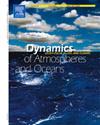基于时间数据的有效波高预测改进
IF 1.9
4区 地球科学
Q2 GEOCHEMISTRY & GEOPHYSICS
引用次数: 0
摘要
有效波高(SWH)的准确预测对于广泛的海洋和沿海应用至关重要。然而,实现准确的数据驱动的SWH预测需要有效的多变量时间序列建模。此外,原始数据中经常出现缺失值,影响预测的准确性。在本研究中,我们提出了一种新的基于扩散的多变量时间序列连续时间建模和时间插值方法。通过学习浮标数据中各变量间的时间相关性和相互依赖性,对缺失数据进行代入,增强对SWH的预测。利用美国国家数据浮标中心的浮标数据进行了实验,验证了时间插值和多元数据使用的有效性。与基线方法和单变量预测相比,实验结果突出了基于条件分数的扩散模型(CSDI)在捕获时间相关性方面的优势,以及它在改善SWH短期预测方面的有效性。在流行的性能指标上,CSDI比现有的估算方法提高了7%-30%。与单变量数据相比,多变量数据的SWH预测结果更好,证实了时间数据的代入有利于预测。本文章由计算机程序翻译,如有差异,请以英文原文为准。
Improving significant wave height prediction via temporal data imputation
Accurate prediction of significant wave height (SWH) is crucial for a wide range of marine and coastal applications. However, achieving an accurate data-driven prediction of SWH requires effective multivariate time series modeling. Furthermore, missing values appear frequently in the raw data and influence the accuracy of the prediction. In this study, we propose a novel diffusion-based approach for continuous-time modeling and temporal imputation of multivariate time series. By learning the temporal correlations and interdependencies among variables in the buoy’s data, the imputation of missing data is conducted to enhance the SWH prediction. Experiments are performed using buoy data from the National Data Buoy Center of USA to validate the effectiveness of temporal imputation and the use of multivariate data. The experimental results, compared with baseline methods and univariate predictions, highlight the advantage of Conditional Score-Based Diffusion Models (CSDI) in capturing temporal correlations and its effectiveness in improving short-term predictions of SWH. CSDI improves imputation by 7%–30% over existing imputation methods on popular performance metrics. Compared to univariate data, the better SWH prediction results on multivariate data confirm that temporal data imputation is beneficial for prediction.
求助全文
通过发布文献求助,成功后即可免费获取论文全文。
去求助
来源期刊

Dynamics of Atmospheres and Oceans
地学-地球化学与地球物理
CiteScore
3.10
自引率
5.90%
发文量
43
审稿时长
>12 weeks
期刊介绍:
Dynamics of Atmospheres and Oceans is an international journal for research related to the dynamical and physical processes governing atmospheres, oceans and climate.
Authors are invited to submit articles, short contributions or scholarly reviews in the following areas:
•Dynamic meteorology
•Physical oceanography
•Geophysical fluid dynamics
•Climate variability and climate change
•Atmosphere-ocean-biosphere-cryosphere interactions
•Prediction and predictability
•Scale interactions
Papers of theoretical, computational, experimental and observational investigations are invited, particularly those that explore the fundamental nature - or bring together the interdisciplinary and multidisciplinary aspects - of dynamical and physical processes at all scales. Papers that explore air-sea interactions and the coupling between atmospheres, oceans, and other components of the climate system are particularly welcome.
 求助内容:
求助内容: 应助结果提醒方式:
应助结果提醒方式:


